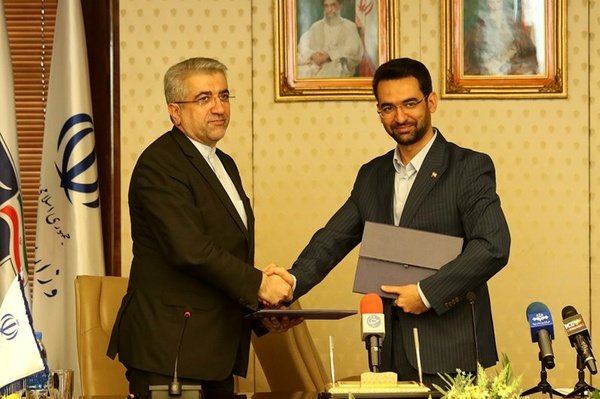Ministries join hands to boost job creation, energy efficiency

TEHRAN – Iran’s Ministry of Information and Communication Technology (ICT) and Ministry of Energy signed an agreement to boost job creation and improve efficiency in the field of water and electricity through technological advancement.
The ICT minister Mohammad Javad Azari Jahromi and the energy minister Reza Ardakanian signed the agreement on Wednesday.
According to the agreement, they plan to apply different usage of technologies in energy industry, provide 100 thousand ICT job opportunities, establish 100 medium-sized enterprises, 100 large enterprises, five international enterprises and establish 20,000 startups.
ICT ministry plans to provide smart water and electricity metering, light switch, electrical substation and street light and water consumption management.
The ministries plan to perform smart water and electricity networks pilot, develop telecommunication capacity, and launch water and electricity market via private sector.
Humans are consuming more energy every year, and utility companies are scrambling to meet the demand.
According to Business Insider, the International Energy Agency expects global energy demand to increase by 37% by 2040, which would likely put a strain on energy supplies.
But utility companies are finding solutions thanks to the Internet of Things. The IoT is making energy use more efficient, which should help relieve some of the stress on energy demand.
Smart meters have become the top IoT device among utility companies in the last several years. These devices attach to buildings and connect to a smart energy grid, which allows these companies to more effectively manage energy flow into buildings.
But there are many more ways the IoT will help the energy industry, specifically water, electric, oil, and gas utilities. Below, we've outlined the ways that IoT utility companies are making energy consumption more efficient.
SB/MQ/MG
